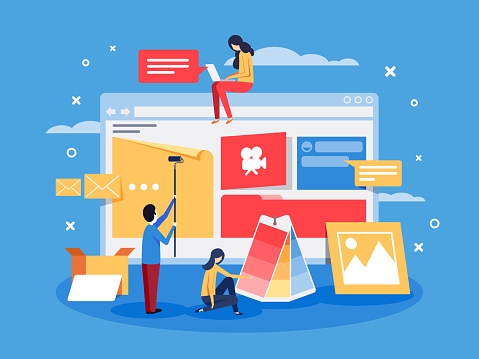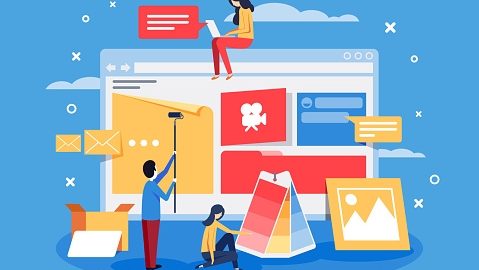— April 23, 2019

With today’s wealth of information available online – creating a generation of savvy, hyper-informed tech buyers – keeping your audience engaged on your website can be quite the challenging task. For small- to medium-sized B2B organizations, having your visitors perform desired actions on your website – such as learning about your products and services, requesting more info, downloading an asset, etc. – can prove even more difficult without the proper research and content set in place.
Remember, the main point of your website should be to generate leads and drive revenue. As you consider your website, ask yourself the following questions:
- Do my products/services convey the proper messaging?
- Am I providing the necessary information up front to inform and educate my audience on those products/services?
- Do I have the critical elements in place to make the buyer’s journey as simple as possible?
In order to answer these questions and help you keep your audience actively actively engaged on your website, here are three marketing tips to help boost engagement on your website:
Know Your Buyers
Delivering the right information to the right people and at the right time during the B2B buying process is critical in persuading them to purchase your solution. Consider creating personas to help determine the type of content to produce for your various types of buyers throughout the buyer’s journey.
Once the research in identifying specific buyer types has been done, focus your efforts on creating customer-centric content that provides value to buyers. Work with your sales team to identify what pain points they hear about most often and personalize the content to provide information that helps answer or solve a problem.
Interactive Content
Technology is never a one-size-fits-all solution, and oftentimes, buyers need your help in choosing the best solution for their organizations. Create interactive content on your website that helps guide the decision on the solution that will best suit their needs and requirements.
Types of interactive content can include:
- A “test drive” version of your solution. See Chartbeat’s test version of their software on their website.
- Live product demos/webinars that allow users an opportunity to ask questions in a Q&A format.
- Calculators, self-assessments, or quizzes that focus on your buyers’ pain points to help them find the exact solution they need.
Be a partner in the buyers’ education and research process from the start and offer easy, fun ways to learn more about your products/services.
Match Content to the Buyer’s Journey
Align your content to match the buyer’s journey and leverage an automated content journey process that focuses on where they are in that process. For example, if a lead downloads an asset on your website, such as a case study, consider following up with a nurture email campaign that provides additional information on the problem you solved in the case study, and drive them back to your website. Taking your audience through this type of educational path will only help them make their decision easier and realize why you are the best solution to fit their needs.
As access to information and content via blogs, videos, webinars and more becomes more readily available to online buyers, B2B organizations must consider new ways to capture their audience’s attention on their website. Remember, buyers tend to do their own research before they begin engaging with a vendor directly, but by following these three tactics, you’ll be a significant step ahead of your competitors when it comes to a powerful online experience.
Digital & Social Articles on Business 2 Community
(61)
Report Post






